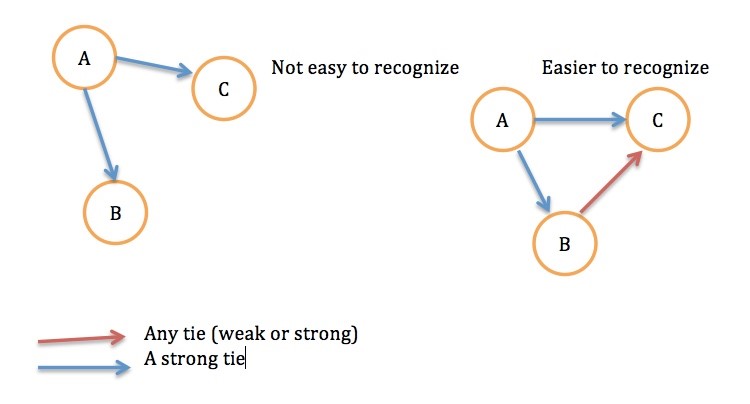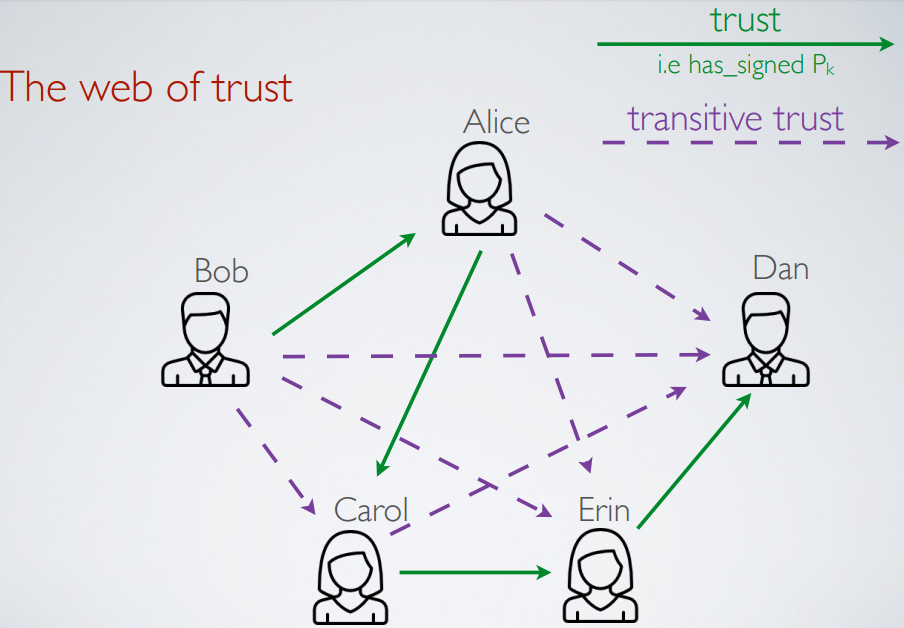In modern-day, Social Network has become one of the most important features in daily life applications. People communicate and share their personal information on social network platforms such as Facebook, Twitter and etc. Have you ever noticed that social media such as Facebook has people you may know, this is through Triadic Closure in which means that if A knows B and B knows C then it implies A and C might know each other or might meet each other in the future.

This is an example of how the social network connects you with some people that you can potentially build a friendship with. Is this a good thing? It might be beneficial if you look into the perspective of extending your social network between you and other individuals in the digital world. It provides you with greater opportunities to meet people who might be helpful in your carrier or private manner. Build up your knowledge and track the newest information about the world.
The concept of triadic closure does not only apply to the social network, but also other fields. For example, in cybersecurity, this is called the Web of Trust, which means if you believe in your friends then their friends can be trustworthy. This transitive trust is easily applied to the Triadic closure.

On the other hand, this can be dangerous in the sense of revealing your personal information to the public. Since on most social media, users are able to search and look into your profile page, your information is easily leaked. It is also the case when you are browsing some webpages, it requires you to register an account with personal information such as email address, name, and contact information in order to get access to the content. In social media when you repost or like/dislike a post your interest might be known by other people. It is easy to find post that might not be true, It becomes untrustful.
In a recent article by the University of Vermont points out that social media privacy can be at risk even if you have deleted or never had an account. That is, the online posts and words from your friends have high potential predictive accuracy of your future activities without the need for your data. This means that by registering on social media, you are not just giving your information but at the same time your friends too. The result of this is that outside of the social media your friend who does not use the platform might be founded by other individuals. Many of the platforms even have access to your contact lists to create fake profiles which means that they do not even exist on the social network and ask people to invite them into the platform.
In conclusion, the creation of social networks is indeed a beneficial and phenomenal move for humankind, however, due to the ever-increasing size of the social network, privacy leak has become one of our primary concerns and more actions needs to be taken in order to maintain a healthy and clean environment.
Reference:
On Facebook and Twitter Your Privacy Is at Risk — Even If You Don’t Have an Account, Study Finds.” ScienceDaily, ScienceDaily, 21 Jan. 2019, https://www.sciencedaily.com/releases/2019/01/190121115354.htm
HutsonJan, Matthew, et al. “People Can Predict Your Tweets-Even If You Aren’t on Twitter.” Science, 22 Jan. 2019, https://www.sciencemag.org/news/2019/01/people-can-predict-your-tweets-even-if-you-aren-t-twitter
